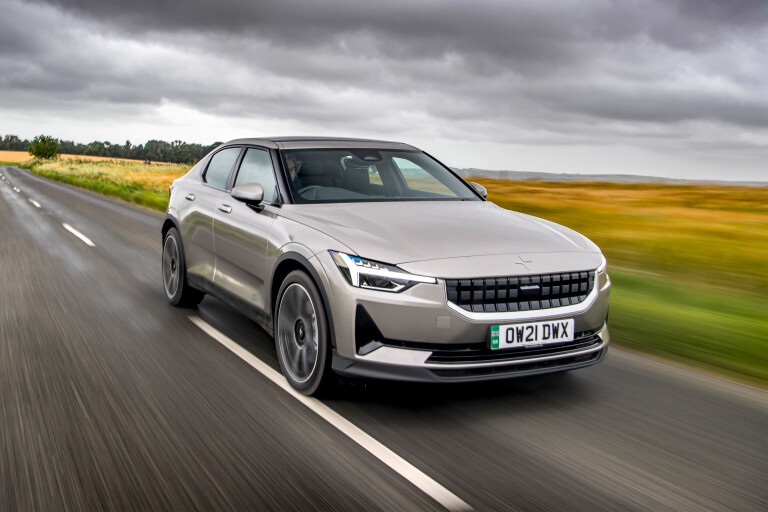
Things we like
- Sophisticated styling
- Engaging to drive
- Intuitive infotainment system
Not so much
- Rear seat a tight fit for adults
- Edgy ride on 20-inch wheels
- Not as efficient as Tesla Model 3
Polestar was originally meant to pave the way for electric-powered Volvos. But with the first electric-powered Volvo, the XC40 Recharge Pure Electric, already on the market, Polestar’s mission statement has been subtly altered.
Polestar, which traces its origins back to a specialist engineering shop set up in the mid-1990s to build Volvos for the Swedish Touring Car Championship, is to become the Swedish brand’s AMG equivalent, building electric vehicles that are quicker and sharper handling than their Volvo counterparts.
It’s a work in progress. The impressively fast Polestar 1, an expensive, hand-built coupe launched in 2019, is only partially electric, with a 462kW/1000Nm hybrid powertrain built around Volvo’s versatile 2.0-litre inline four.
And the most powerful version of the three-car Polestar 2 line-up, the Long Range Dual Motor, has exactly the same 300kW/660Nm dual-motor powertrain as the electric Volvo XC40.
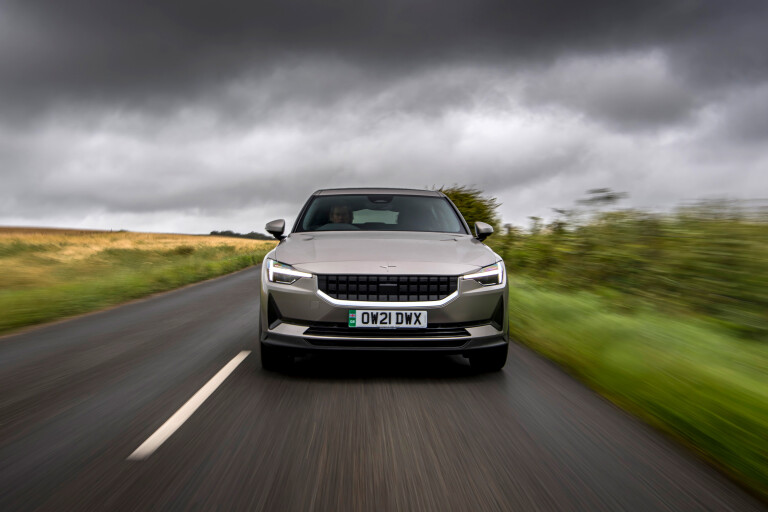
The Polestar 2 Long Range Single Motor sits in the middle of the Polestar 2 pack. It has the same 78kWh battery pack as the top-of-the-range Long Range Dual Motor, but, as the name implies, just one e-motor, a 170kW/330Nm unit that drives the front wheels.
The entry-level Polestar 2 is the Standard Range Single Motor, which has a 64kWh battery pack, and a 165kW/330Nm e-motor driving the front wheels.
Polestar is clearly positioning the Long Range Single Motor to be the all-rounder of the line-up. It doesn’t have the urgent thrust of the Dual Motor – its 7.4 second 0-100km/h acceleration time is 2.7 seconds slower and identical to that of the Standard Range model. But it offers the best range of the three – up to 539km on the WTLP test, according to Polestar, compared with the Dual Motor’s 479km and the Standard Range model’s 439km.
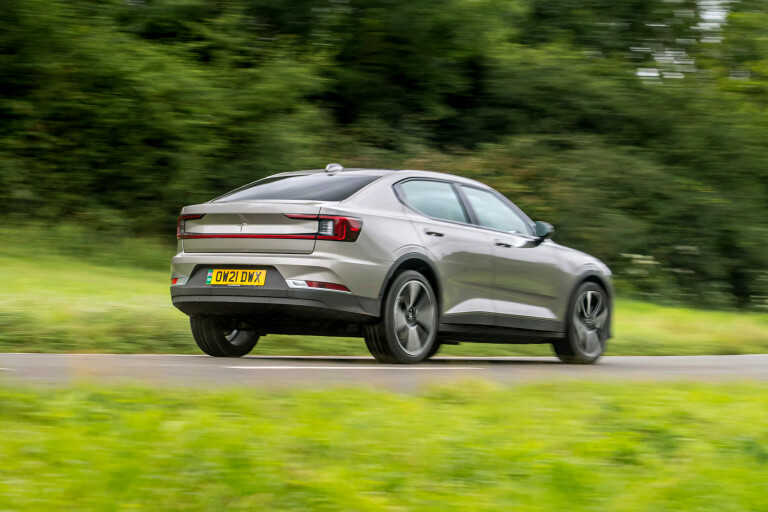
Despite its vaguely sedan-like profile, the Polestar 2 is a five-door hatchback, built on the same CMA vehicle architecture as the Volvo XC40 Recharge Pure Electric.
Dimensionally, it’s very different, however. With an overall length of 4606mm, width of 1985mm, and height of 1479mm, it’s about four per cent longer and wider, and 12 per cent lower than the Volvo SUV, not the least because it rides 24mm closer to the Tarmac. At 2735mm, the Polestar’s wheelbase is also 33mm longer than the Volvo’s.
The complex trigonometry of its design means the Polestar 2 doesn’t feel as roomy inside as the XC40, however. The battery pack under the floor means you ride high, and that, combined with a low roofline and high waistline, means rear-seat head and foot room is tight for tall passengers. Rear visibility isn’t particularly good, either.
Polestar is positioning the Long Range Single Motor to be the all-rounder of the line-up – it doesn’t have the urgent thrust of the Dual Motor, but it offers the best range
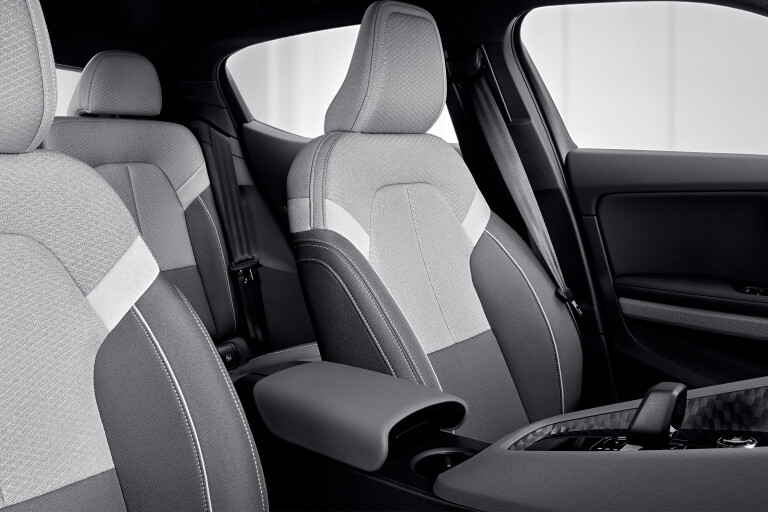
The Long Range Single Motor’s interior doesn’t quite sparkle as much as the Dual Motor’s – the Polestar logo on the steering wheel is black rather than silver, for example – but the overall ambience is quietly elegant and coolly sophisticated.
The standard embossed textile upholstery is a vegan material and available in two colour executions, matched to 3D-etched décor panels. Even in basic black, it’s a much more upscale looking interior than that of the Volkswagen ID.4.
Australian pricing has yet to be confirmed, but the Long Range Single Motor should come in at less than $70,000 when the Polestar 2 goes on sale in January 2022. Volvo’s excellent Android Automotive OS-powered infotainment system with its 28cm centre display and 31.2cm driver display is standard, along with an extensive suite of Volvo-developed active safety aids and driver support systems.
Our test car was fitted with the optional Plus Pack, which, among other things, added electric front seats with memory, glass panoramic roof, and a Harmon Kardon 600W 13-speaker sound system to the mix, plus optional 20-inch wheels.
As with many electric vehicles, there’s no start-stop button – the Polestar 2 simply wakes up once you’re in the driver’s seat. Foot on brake, tug at the ultra-chic six-sided shifter that’s within easy reach on the high centre console, and you’re ready to roll.

At first, the Long Range Single Motor feels oddly lethargic for an electric vehicle, where maximum torque at zero revs usually means instant-on thrust. That’s because Polestar dialled a degree of non-linear response into the accelerator to help those with less sensitive right feet drive more smoothly.
That trademark EV acceleration is still there; you simply have to depress the accelerator pedal further than expected to access it.
A quick tap on the car icon on the central touchscreen allows you to quickly tune a couple of key elements of the Polestar 2’s driving characteristics. You can choose whether to have the car creep forward the moment you lift your foot off the brake, how much automatic regen you want when you lift off, and whether you want steering weighting that’s lighter or firmer than the standard set up. You can also switch the ESC into Sport mode.
The creep mode has become common on electric vehicles to give drivers a similar feel to that of driving an automatic. Switching it off means you can sit at the traffic lights without necessarily having to have your foot on the brake all the time, though, which can be restful if you spend a lot of time stuck in heavy traffic.
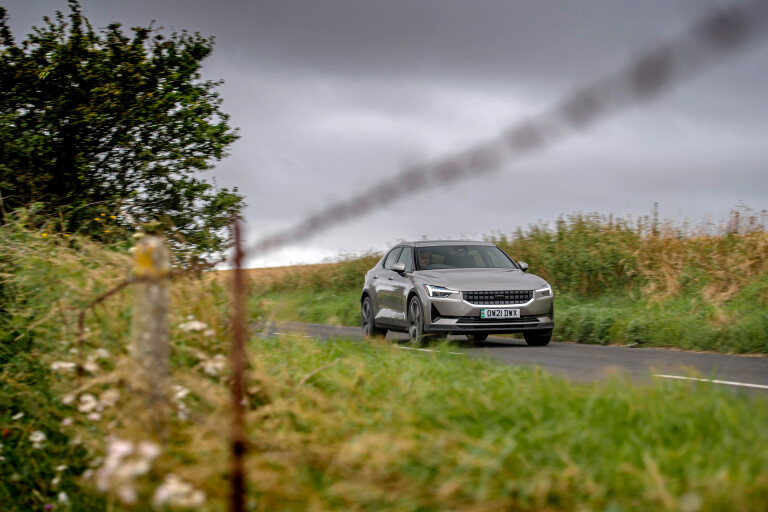
Polestar’s standard regen setup is very strong and allows for easy one-pedal driving around town, your foot scarcely needing to touch the brake. Even the low regen setting slows the car noticeably the moment you lift off. If you like driving, however, you’ll probably prefer to switch the regen completely off, which allows the Polestar to coast the moment you lift off the accelerator.
It makes the car feel freer to drive, especially on the freeway and on country roads, but also even around town. And because all braking events up to 0.3g are done via regen anyway, there won’t be extra wear and tear on the pads and rotors.
The standard steering setting is best. The firm setting merely adds more effort without increasing feel, and the light setting makes the transitions as you turn the wheel through the heavily weighted on-centre position feel slightly non-linear.
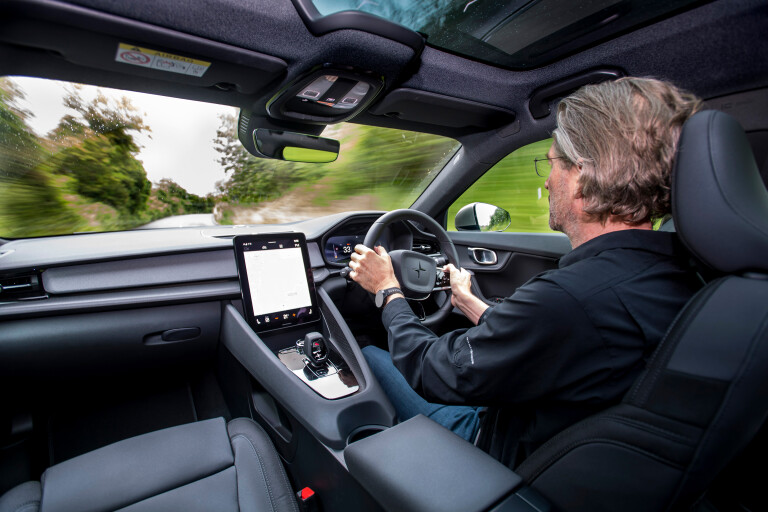
Polestar launched the 2 with the Dual Motor Long Range model, and most of the press cars were fitted with the optional Performance Pack, which adds 20-inch forged alloy wheels with 245/40 Continental SportContact 6 tyres, Brembo four-piston brakes with bigger drilled front rotors, and Öhlins Dual Flow Valve manually adjustable dampers.
With this setup, the ride is very, very stiff. (The Öhlins dampers, which have 20 different stiffness settings, of which number 20 is softest, originally came set at eight front and rear. UK-spec Polestars, for example, with the Performance Pack now come with the shocks set at 11.)
Though the damping characteristics are quite different – like most competition shocks the Öhlins units have very sophisticated rebound valving that seeks to eliminate almost all secondary body motions – company sources say the standard Polestar damping rate equates to an Öhlins setting of about 15. The Long Range Single Motor’s ride is still firm, especially over sharp bumps, but it’s not harsh.
Our test car's optional 20-inch alloys and 40-section Contis perhaps amplified initial body motions. The standard 19-inch wheel, shod with the slightly softer sidewall 245/45 Michelin Primacy 4 tyres, would undoubtedly deliver a better ride, though even on its 20s, our Polestar felt more comfortable and composed than the Volkswagen ID.4 we drove over the same roads a few weeks previously.
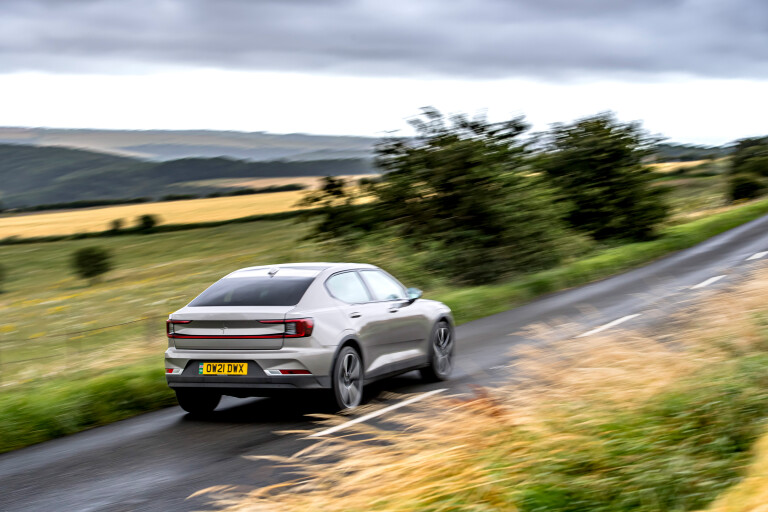
The Polestar steered better than the Volkswagen, too, reacting more readily to initial steering inputs, and communicating better what was happening where the rubber met the road.
You could lean more on the front end in the Polestar than you could in the ID.4, and even though it is front-wheel drive, go to power earlier than in the rear-drive Volkswagen, confident in the knowledge it wasn’t going to push wide.
More importantly, given Polestar’s role, the Long Range Single Motor felt more engaging to drive than the Volvo XC40 Recharge Pure Electric, with noticeably better steering and brake feel, and a more composed demeanour over humps and heaves in the road.
A Sport mode setting that sharpened up the accelerator pedal response a tad would be welcomed by enthusiast drivers, however. The good news is it’s an easy software fix should Polestar choose to make it happen.
What most drivers will focus on, however, is the range. Our test car arrived with 98 per cent charge in the battery and showing a range of 418km.
It returned with 27 per cent charge left and showing a range of 115km after a 252km test loop that included sections of freeway running at 120km/h to 130km/h – with a couple of discreet bursts to 160km/h – plus stretches of fast and slow country road and stop-start city traffic. The trip computer showed an average consumption of 20.4kWh/100km.
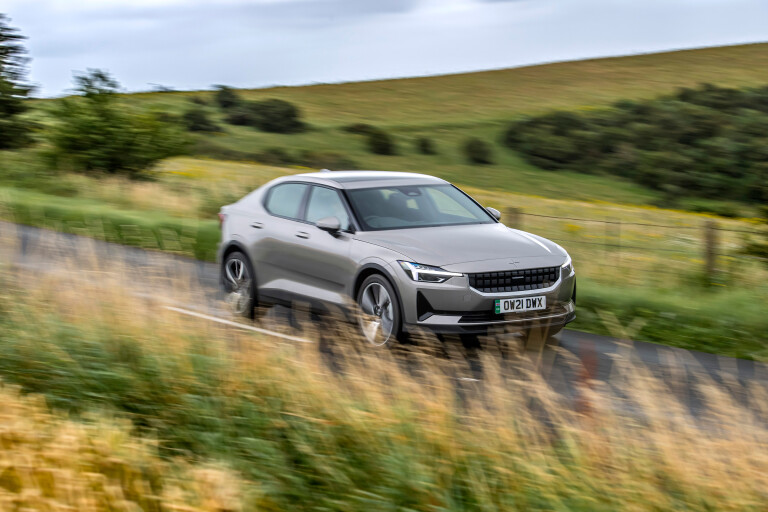
Just as with any internal combustion engine vehicle, your energy consumption depends on how you drive. But let’s be clear: those European WLTP range numbers are wildly optimistic, so forget that claimed 539km.
Our experience suggests a real-world range number for the Long Range Single Motor is likely to be between 360km and 400km, right around that of a single motor Tesla Model 3 Standard Range Plus.
Yes, the Tesla’s cheaper and uses its battery more efficiently. But the Polestar 2 is better built and better finished, with a more intuitive user interface, and better active and passive safety features.
Yes, the Tesla’s cheaper, and uses its battery more efficiently, but the Polestar 2 is better built and better finished.
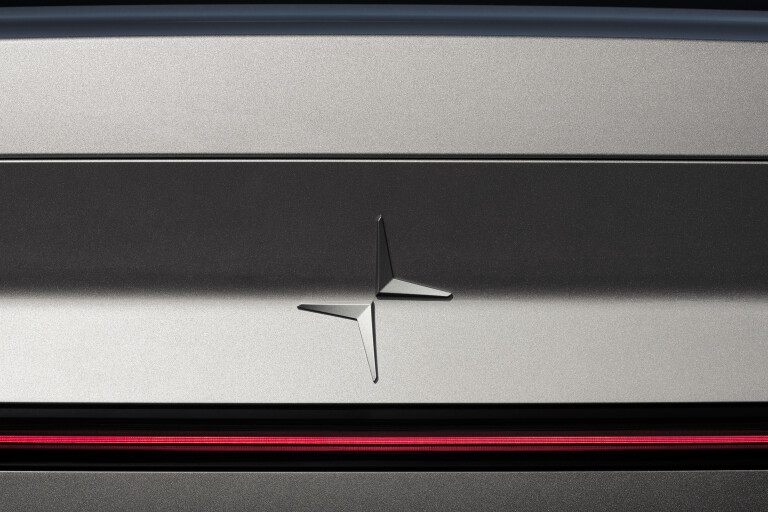
2022 Polestar 2 Long Range Single Motor specifications
| Engine | Electric motor |
|---|---|
| Max Power | 170kW |
| Max Torque | 330Nm |
| Transmission | 1-speed automatic |
| 0-100km/h | 7.4sec (claimed) |
| Range | 539km (WLTP claimed) |
| Price | $70,000 (est) |
| On sale | January 2022 |
Things we like
- Sophisticated styling
- Engaging to drive
- Intuitive infotainment system
Not so much
- Rear seat a tight fit for adults
- Edgy ride on 20-inch wheels
- Not as efficient as Tesla Model 3



COMMENTS